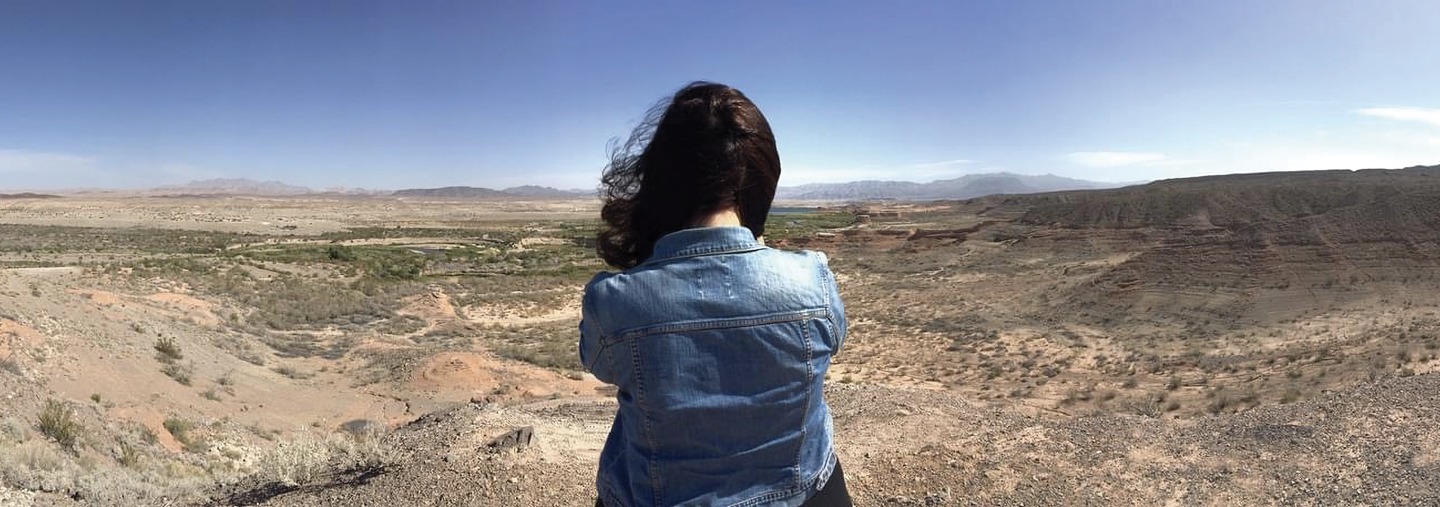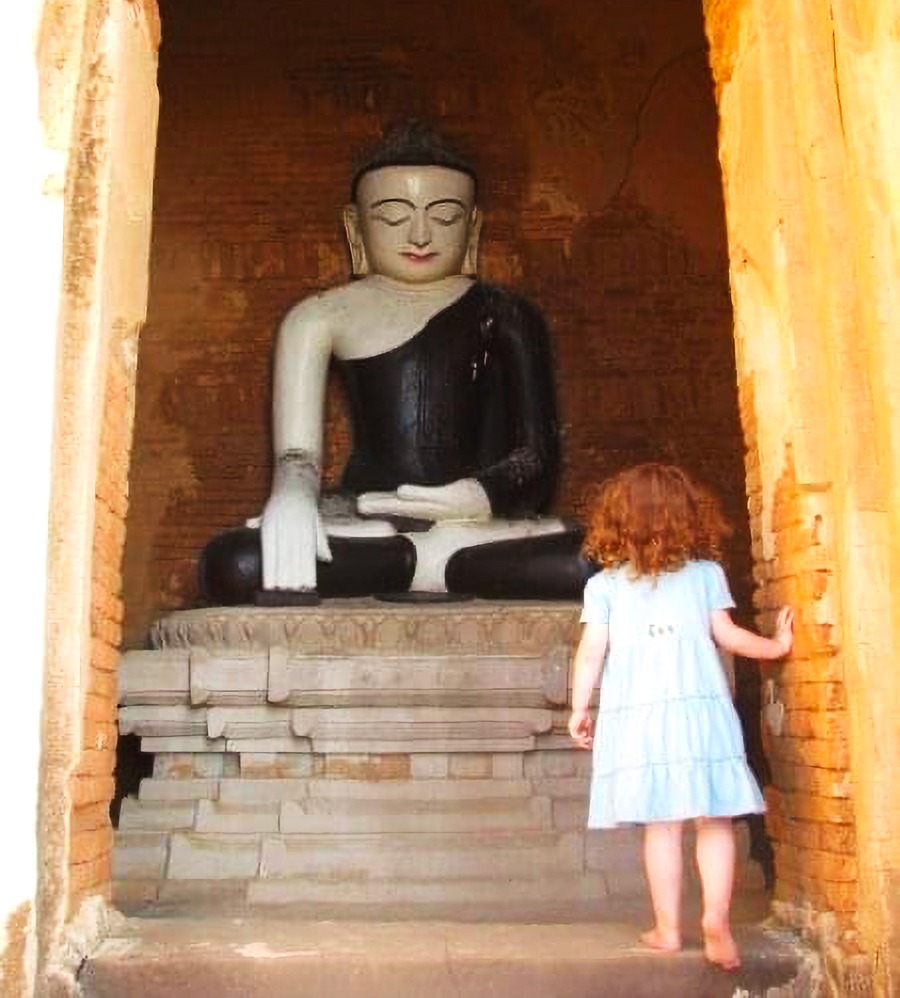Travel as Life: Cultivating Roots and Wings

Sarah Goldfeder
I have never lived in the places my parents grew up. My mom grew up outside Chicago, and we would go see my grandmother, but not in the town my mother grew up in. My father grew up in Brooklyn, but everyone pretty much left before I was born. I came along while my father was pursuing his Ph.D. at Louisiana State University (Geaux Tigers). I went to high school in Alaska and university in Oregon and Colorado. My children were born in Colorado, Germany, and Maine. The frequent question, “Where are you from?” creates all sorts of anxiety for someone like me. Everywhere? Nowhere in particular? America?
What can you say when you were born in a place you have no other connection to, grew up in places no one in your family had ever been to before, and then did it all over again until well into your adult life. Then you emigrate — as I did to Canada following a diplomatic posting — and finally settle down somewhere you have no familial connection to at all. In the military, we called it the third culture kid or TCK for short (because of course, in the military, we need an acronym if we’re serious about an issue) — someone whose very identity is centered on not belonging anywhere.
As a third culture kid you take on an exaggerated ownership of the place that you’re from. Your identity is constructed on imaginings or nostalgia for a place that you visit but never quite get to feel at home in. Your ability to blend in, reflect mannerisms and accents, makes you a chameleon of sorts, and you learn to leave judgments aside. You eat whatever you’re served, watch for cues on when to take your shoes off, cover your shoulders or bow your head. This daily posture doesn’t leave you when you come “home” — one of the most challenging exercises of any return to North America was my first run through a drive-thru, the cadence, the pace and the wording of the order and the response being something my contemporaries didn’t think twice about, but was just a bit unfamiliar at first. There’s a haze of not-belonging that clings to you, wherever you are. I used to describe it as knowing there’s a secret handshake but not knowing what it is.
The constant moving keeps you rooted in your family and what you can carry. Connections to bedrooms, houses, neighborhoods, schools, are all transitory. Your favorite talismans and the people that moved with you are what define home. To this day, for me, objects carry more weight than property. Nothing has survived the many moves without intention.
Summers were one of two things — either a pick-up-and-move summer, where we would spend May and June doing all our favorite things in wherever we lived one last time (one last time on our favorite walk, to the best ice cream shop, to see these people or those people, etc.) and then suffer through 2-3 days of packers and movers before either loading up a car or flying off to see Gramma before heading to the new place and finding all those best spots all over again. The other summers were all about going wherever the locals went — the favorite spots, because while everyone else thought they were ordinary, it was all new and exciting to us.

At Gramma’s house, there was a bandstand in a park where we listened to the concert band play John Philip Souza and a convent next door to the Catholic church that reminded me of the yellow-hatted girls of Madeline. There was one excursion to Marshall Field’s on State Street in Chicago each visit. At Gramma’s house, there was a big red barn and a vegetable garden. Next to the garden were huge fold-up double doors that led to the storm cellar, where there was a massive freezer. I remember at some point thinking that an inside stairway to a basement was a thing of luxury. There were bowls of home-grown strawberries and each time, one dinner out for Gramma’s favourite, liver and onions. A meal that only a grown-up would eat.
The summers we didn’t go to Illinois we stayed close to “home” – in Spain that meant road trips around the Iberian Peninsula. Sitting in the back of what seemed like the only Toyota Corolla station wagon on the continent (at least at that point), we stuck out, with our Lafourche “Eat Louisiana Oysters” bumper sticker receiving the odd cheer. We mostly camped, with local food cooked up by my mother on a camp stove set up on a card table. The Toyota required many repairs and replacement parts, all brought to us when family came to visit. There was a long discussion I only vaguely remember regarding how to get an exhaust system from the US. to Spain via Air Iberia checked- luggage policies.
We moved that tradition, complete with the car, when we moved to Spokane. Staying close meant frequent trips to Lake Pend Oreille and Coeur d’Alene, an early introduction to the legacy of the Canadian fur trade and the adventures of Lewis and Clark. Camping in Idaho was more rustic, less urban, than in Spain. The campgrounds I had been used to were in parks either surrounded by the town or just outside, with pools, full bathrooms, convenience stores, discos, and restaurants. From that world we moved to the National Forest Campgrounds which were ranked by access to toilets and existence of showers (pit toilets, no showers and sometimes even no toilets, no showers).
The transition from the one world to the other occurred without a missed step. My parents instilled in me an acceptance of whatever the day might bring. We may end up in a campground with a disco or a campground with pit toilets, we may end up in a converted castle or a roadside motel. None of it was better than the rest, each experience was rich and memorable, and we belonged in each and every place.
Being a military “brat” eventually led to employment in the US. government. We moved my oldest daughter to Germany when she was barely a year and a half, after a summer of road trips back and forth from the Western Slope to the Front Range of Colorado, to Wyoming, to New Mexico, and eventually out to Seattle and through Wisconsin and Illinois before finally getting on a plane. We spent five years staying close to “home” again, exploring towns within an hour or so of the town where we lived. A second kid came along and then a third and then we moved around the world some more, this time as part of the diplomatic corps.
I’ve passed this legacy of being the third culture kid on to my own. They now have their own summer stories of going to grandparents’ houses – in Colorado, New Mexico, and Washington. They have also learned how to see the richness in what is in front of them, see the beauty in everything from a truck stop in Wyoming to a beach town in Southeast Asia. The power in those experiences epitomizes what is best about those of us who don’t belong anywhere in particular — in the end it isn’t a sense of unbelonging, it is a belief that goes beyond belonging. The understanding that none of us has any more or less claim to the space we inhabit, we are only experiencing it all.
Travel was never a distinct activity that we did in my family – neither as a child nor an adult. Travel is something we lived. There was never a choice in the matter, it was simply what happened next. It wasn’t removed from our routine, and while sometimes it was an excursion, often it was coming home. There’s a quote attributed to many, “There are two lasting bequests we can give our children: Roots and wings.” I always joked that I did really well at the wings, not so good on the roots. But the truth is more complicated. Roots, it turns out, tend to wander, but never forget what they are.
Contributing Writer Sarah Goldfeder, a military brat, former US. diplomat and self-described nomad has lived in eight states, six countries, and three continents and is now a member of the public policy team at GM Canada, based in Ottawa.
